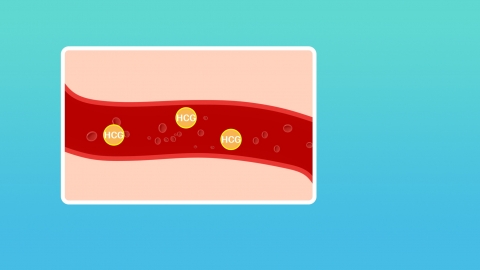What causes blood vessels to harden?
Generally, vascular hardening may be caused by aging, unhealthy lifestyle habits, hypertension, hyperlipidemia, diabetes, and other factors. If experiencing any discomfort, it is recommended to seek medical attention promptly. A detailed explanation is as follows:
1. Aging
With increasing age, the elastic fibers in the vascular walls gradually decrease while collagen fibers relatively increase, leading to a natural decline in vascular elasticity and a gradual tendency toward hardening. In daily life, one should persist in moderate physical exercise, such as walking, jogging, or swimming, which can help improve blood circulation and delay vascular aging. At the same time, maintain a balanced diet rich in fruits and vegetables containing vitamins and dietary fiber, and reduce intake of high-fat and high-sugar foods.
2. Unhealthy Lifestyle Habits
Long-term smoking damages vascular endothelial cells, making the vascular walls more susceptible to injury and hardening. Similarly, chronic heavy alcohol consumption affects normal vascular function and accelerates the process of vascular hardening. Quitting smoking promptly and avoiding exposure to secondhand smoke are essential. Establish regular sleep patterns, avoid long-term sleep deprivation, maintain a positive mindset, and avoid excessive tension and anxiety.

3. Hypertension
Long-term elevated blood pressure continuously impacts the vascular walls, causing endothelial damage, promoting vascular wall thickening, reducing elasticity, and ultimately leading to vascular hardening. Antihypertensive medications such as nifedipine controlled-release tablets, amlodipine besylate tablets, and valsartan dispersible tablets should be taken under a doctor's guidance to maintain blood pressure within the normal range. Additionally, reduce sodium intake and monitor blood pressure changes regularly.
When lipid levels such as cholesterol and triglycerides in the blood are excessively high, they can deposit on the vascular walls, forming atherosclerotic plaques that narrow the vascular lumen, reduce vascular elasticity, and lead to vascular hardening. Lipid-lowering medications such as atorvastatin calcium tablets, rosuvastatin calcium tablets, and fenofibrate capsules should be used under medical supervision to lower blood lipid levels. Maintain a light diet in daily life, reduce consumption of animal offal and fried foods, and increase physical activity appropriately.
5. Diabetes
Patients with diabetes have persistently high blood glucose levels that damage vascular endothelial cells, triggering inflammatory responses in the vascular walls and accelerating the onset and progression of vascular hardening. Hypoglycemic medications such as metformin hydrochloride tablets, glimepiride tablets, and insulin injections should be used under medical guidance to strictly control blood glucose levels. Regularly monitor blood glucose, lipids, and blood pressure; maintain good dietary habits and avoid consuming high-sugar foods.
In daily life, regular physical examinations should be conducted to detect vascular health issues promptly and implement interventions. Maintain moderate exercise to promote blood circulation and follow medical advice for appropriate medication use—never adjust dosages on your own.








